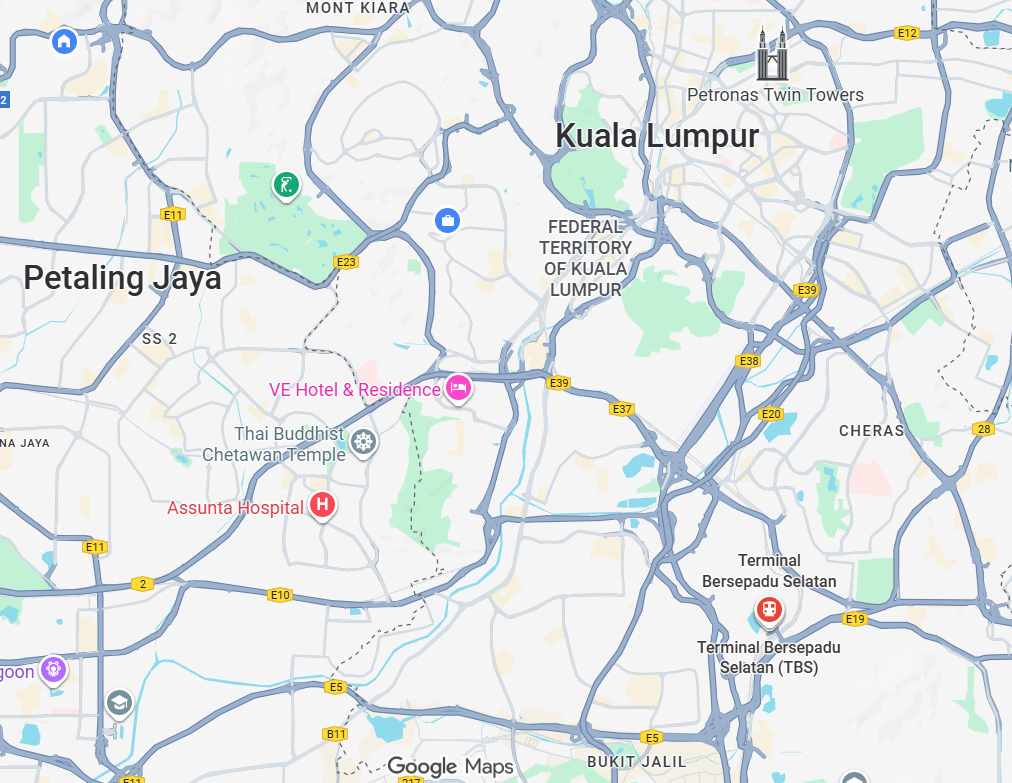The temporary suspension of Aeroline’s premium coach services exposes long-standing flaws in Malaysia’s public transport planning, reigniting debate about Terminal Bersepadu Selatan’s inconvenient location and the country’s rigid “terminal-only” policy.
The recently announced suspension of Aeroline’s services, effective November 6 to December 5, 2025, has stirred frustration among thousands of regular passengers and reignited debate about Malaysia’s public transport system and the rules which govern it. While the Land Public Transport Agency (APAD) acted within its authority, experts say the situation underscores how outdated regulations have failed to adapt to changing urban realities and passenger expectations.

REGULATION VERSUS REALITY
The issue revolves around Malaysia’s “terminal-only” policy, which requires express bus operators to embark and disembark passengers solely at designated terminals such as Terminal Bersepadu Selatan (TBS) in Kuala Lumpur, or equivalent hubs in other cities. In principle, the policy promotes order, safety, and congestion management. But in practice, critics argue, it adds unnecessary travel time and inconvenience for passengers, particularly those accustomed to city-centre access.
Transport policy expert Wan Agyl Wan Hassan noted that enforcement action against Aeroline was technically correct but practically flawed. “The ministry and APAD acted lawfully,” he said. “However, when compliance rules are rigid but cities evolve rapidly, even responsible operators can find themselves in breach.”
TBS, located nearly 13 km from Kuala Lumpur’s city centre, was originally conceived as a hub to consolidate intercity travel. But getting there can take up to an hour from central areas such as KLCC, Bukit Bintang, or Mont Kiara, even on a good day. For commuters relying on Aeroline’s established pickup points at Hotel Corus near KLCC and 1 Utama in Petaling Jaya, that difference is significant.
“Urban passengers value accessibility,” Wan Agyl explained. “A balanced system should integrate both major terminals and limited, well-managed city stops with trained marshals and timed loading zones.”

THE HEART OF THE ISSUE
The long-established Aeroline company, known for its premium express bus service linking Kuala Lumpur, Penang, and Singapore, has for years operated from centrally located points for the convenience of business and leisure travellers. These locations were not random; they were chosen because they reduced “first-mile” travel hassle – a key factor for urban professionals, expatriates, and frequent cross-border commuters.
Now, with the company forced to halt all scheduled operations following three show-cause letters from APAD, many passengers say the decision prioritizes bureaucracy over practicality. On social media, customers have expressed plenty of disappointment and confusion, asking why efficient private services are being penalized for adapting to demand. Indeed, shutting down a company for an entire month is hardly a slap on the wrist. Understandably, Aeroline is doing its utmost to call on the government to forestall this action and prevent this suspension from taking effect.
Malaysian Public Transport Users Association (4PAM) president Ajit Johl believes the government must take a more pragmatic stance. “The intent behind centralizing bus operations at TBS is understandable,” he said, “but enforcement must consider commuter convenience and infrastructure capacity. We’ve been informed that TBS is already near its limit, and moving a high-frequency operator like Aeroline could create bottlenecks instead of solving them.”
He added that while the law should be upheld, authorities must explore a “balanced solution” that keeps essential services running without compromising accessibility. “The suspension is legal, but it’s not sustainable. We hope discussions will lead to a resolution that benefits both the operator and the travelling public.”
WHY TBS IS A HARD SELL
Located in Bandar Tasik Selatan, TBS is connected to the city by KTM Komuter, LRT, and the KLIA Transit line. On paper, it’s a model of multimodal integration. But the reality for many travellers is significantly less rosy. Those with luggage, children, or tight schedules find the transfers cumbersome and time-consuming, and the station itself confusingly laid-out and poorly maintained. For visitors heading to the city’s major hotels or offices, the final leg of the journey can feel like an unnecessary ordeal. For perhaps understandable reasons, the station currently has a meagre 2.7 rating on Tripadvisor, with the comments and reviews littered with criticism of the facility.

Adding to the problem, access roads to TBS are frequently congested, especially during peak hours and festive seasons. Parking at the complex is limited, and last-mile transport options such as taxis or ride-hailing services are inconsistent in availability and cost.
For business travellers, who make up much of Aeroline’s clientele, convenience is key. “People are willing to pay for comfort and reliability,” said a regular passenger who commutes weekly between Kuala Lumpur and Singapore. “Now, instead of a simple walk to the Corus Hotel stop, I’ll have to take a train and two transfers just to catch my bus.”
TIME FOR POLICY REFORM
Industry watchers argue that the Aeroline case reflects a broader need to modernize Malaysia’s public transport regulations. They say the focus should shift from rigid enforcement to adaptable frameworks that encourage innovation while maintaining safety standards, something that requires flexible and creative thinking at times.
Wan Agyl suggests Malaysia study models from Singapore and Seoul, where well-regulated curbside terminals coexist with centralised hubs. “These cities demonstrate that managed flexibility works,” he said. “It’s about structured regulation, not over-regulation.”
There is also growing concern about the impact of such suspensions on tourism and economic activity. Malaysia is gearing up for Visit Malaysia Year 2026, with the Transport Ministry itself highlighting the importance of seamless connectivity. Critics argue that grounding efficient operators sends the wrong message to visitors.
A NEED FOR BALANCE
While Aeroline’s suspension is expected to last “only” a month, the episode has laid bare Malaysia’s ongoing struggle to align its transport policies with modern mobility needs. It’s a debate that extends beyond one company – touching on how the country wants its capital to function as a connected, competitive, and commuter-friendly city.
For now, regular passengers can only wait and hope that common sense prevails. A compromise may well emerge in the coming days, but it will require officials to look beyond the letter of the law and focus instead on the realities of daily travel in Malaysia’s largest urban centre.
Sources: New Straits Times, CNA, The Star, Malay Mail, Free Malaysia Today, The Edge, Tripadvisor.

















